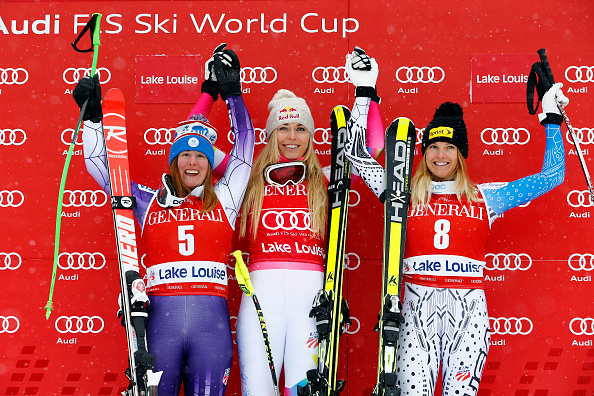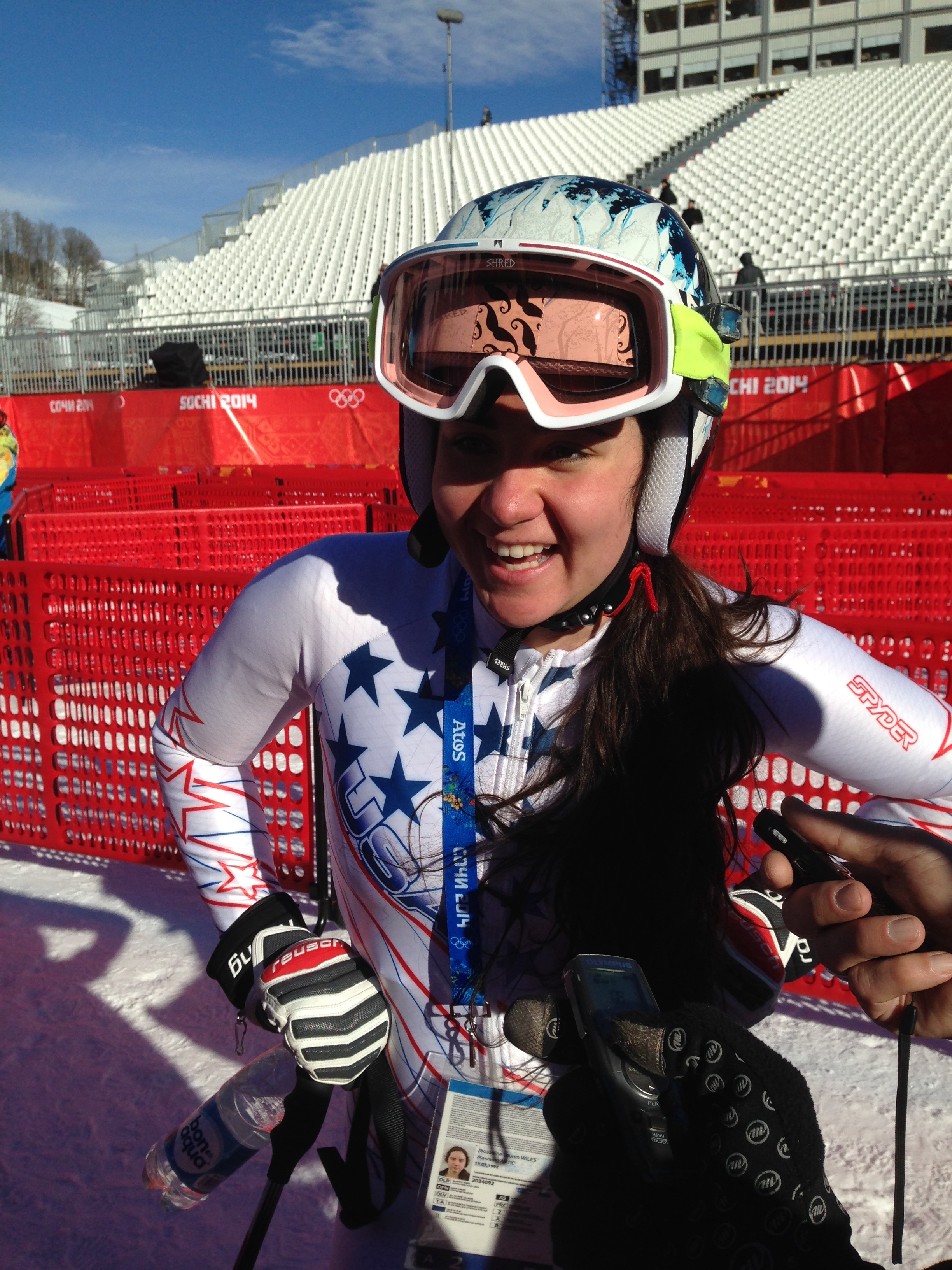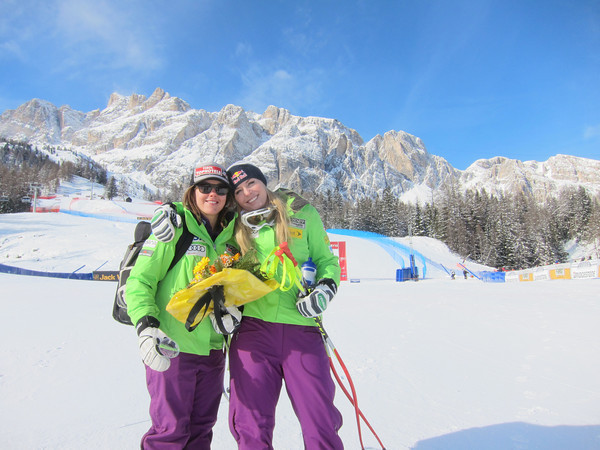Lindsey Vonn won Saturday. Improbably, maybe, but only if you don’t know Lindsey Vonn, who is as mentally tough as they come. That she won is good -- obviously -- for her. Better, it’s good for the U.S. team, for alpine skiing and for Olympic sports, because the Olympic world needs stars and Lindsey Vonn is a big star, arguably the biggest in all of winter sports, even though she didn’t even ski at the Sochi Olympics.
For her to be back — it’s just good all around. That’s reality.
Vonn won a World Cup downhill in Lake Louise, Canada — a course on which she has won so many times in recent seasons it has been dubbed “Lake Lindsey.”
Her victory capped a 1-2-3 U.S. finish, with Stacey Cook taking second and Julia Mancuso third, the first-ever U.S. Ski Team podium sweep, men’s or women’s. It marked the best finish in two seasons for all three.
The last nation to sweep a women’s World Cup podium: Austria, 2009.
For Vonn, Saturday’s race was only her second start since knee surgery last January knocked her out of the Sochi Games.
Every day has gotten better here,” she said after winning by 49-hundredths of a second. Mancuso finished 57-hundredths back.
“Today,” Vonn added, “I went a little bit more aggressive than I did yesterday and took some more chances. I’m finally feeling confident again going fast. I’m pushing the limits and I want more speed. I haven’t had that yet until today.”
Vonn’s victory was her 60th on the World Cup tour. She moves within two of the women’s record, held by retired Austrian Annemarie Moser-Pröll. She has said she not only wants to break that mark but is thinking about the men’s mark — 86, held by Ingemark Stenmark of Sweden — and wants to keep racing through the 2018 Pyeongchang Winter Games.
Fifteen of Vonn’s 60 victories have come at Lake Louise. She won seven races in a row there from 2010 to 2012.
For most of the past year, Vonn has been in ski limbo.
At the February 2013 world championships, she shredded her right knee in a crash. She underwent surgery.
In November 2013, in a training crash, she injured the knee again.
Last December, trying to suck it up for Sochi, she skied at Lake Louise, finishing 40th, 11th and fifth. In a fourth World Cup race last Dec. 21, she aggravated the knee in a race in Val d’Isere, France. Another knee surgery in January meant no Sochi Games.
Her comeback since has been well-chronicled. She said Saturday evening in a brief teleconference with reporters that the knee feels great; she has to wear a brace when she skis but that's it. No restrictions, she said.
Vonn finished eighth in Friday’s downhill, a race that, for the first time in two seasons, saw four American women land in the top 10, Laurenne Ross in fourth, Mancuso seventh and Cook ninth.
Saturday’s downhill saw the same, the 1-2-3 and then Ross in sixth.
“I always thought this was something possible with our team,” Cook, who made her first World Cup podium since Dec. 1, 2012, said. “I really wanted to be a part of it when it happened. It’s a good day to step up. I’m so excited for Lindsey too. It’s a cool day.”
Mancuso, who has four Olympic medals but hadn’t been on a World Cup podium since March 3, 2013, said, “It’s cool because both of the girls on the podium with me are my age. We’re all the same age—born in ’84—and we’re veterans of the World Cup. We’ve all been working very hard and I’ve grown up with both of them. It’s an awesome day!”
Vonn, in that 10-minute teleconference Saturday evening with reporters, said this:
"I definitely think I shocked a few people. Yesterday I think everyone was, you know, genuinely happy for me and they thought it was a really great start to my season. But I don’t think really anyone expected me to win today. And I could definitely see that on a few of the girls’ faces.
"I could see that my teammates knew it was coming. They know me very well. They were extremely supportive and happy.
"Like I said in the finish, I am not expecting this to happen all the time. I am still, you know, kind of getting a feel for things and building my confidence and getting used to racing again. But, you know, I feel a lot better after the win today. My confidence is definitely a lot -- a lot -- better.
"I just hope to keep the ball rolling and keep improving."
















